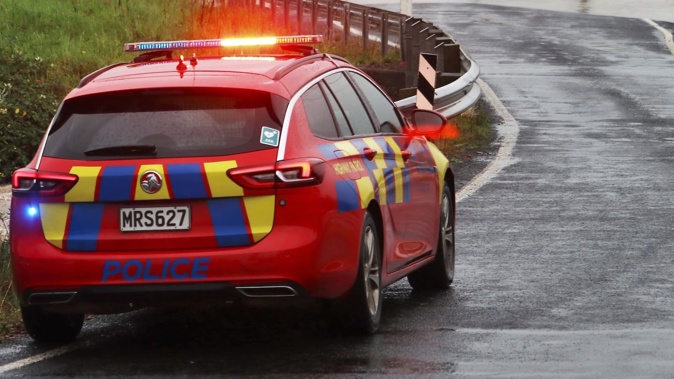
A man arrested and driven away by police in his own car was able to escape by jumping from the moving vehicle.
The bungled arrest, in Northland in April last year, also involved a police-issued magazine of ammunition being left at the scene and the man breaking his cheekbone.
A recently released report by the Independent Police Conduct Authority (IPCA) found officers breached policy by initiating the pursuit and by transporting the man in his own car.
However, both the IPCA and a police investigation found the man’s claim to have been punched in the face was not credible, and there was insufficient evidence to charge either officer with assault.
Northland district commander Superintendent Matt Srhoj said the incident was investigated after the man complained that both officers punched him in the face during his arrest.
The IPCA was satisfied with the outcome of the police investigation, he said.
The two Northland officers initially signalled the man to stop on State Highway 10, in the Far North, after he turned his car headlights off when passing them.
The driver failed to stop and drove off at speed before turning onto a private rural road and stopping, where he was arrested.
After an argument, he was forced to the ground and handcuffed, Srhoj said.
The man claimed it was during this scuffle that the officers punched him in the face.
Srhoj said one officer then drove the man away in the man’s car, while the other officer followed in the patrol car.
While being driven away, the handcuffed detainee unbuckled his seatbelt and jumped from the moving car, jumping over a fence and running through a nearby paddock.
The officers stopped and chased the man, who was now accompanied by members of his family, and managed to restrain him again.
He was then taken in the patrol car to the police station, where he was assessed by ambulance staff and taken to hospital with a fractured cheekbone.
Srhoj said the police investigation found there were credibility issues with the man’s account of events, and there was insufficient evidence to charge either officer with assault.
It did, however, find that the officers breached policy in relation to the pursuit and in transporting the detainee in his own car, he said.
Northland district commander Superintendent Matt Srhoj says the Independent Police Conduct Authority is satisfied with police's investigation and measures like issuing an advisory not to transport detainees in their own cars. Photo / NZME
Police treated the situation as a lesson to be learnt, advising all staff not to transport detainees in their own cars, Srhoj said.
“A professional discussion was conducted following the investigation, informing staff that the transportation of detainees in their own vehicles is not recommended.”
A police-issued magazine of ammunition was found at the scene of the incident and handed in to the police station.
The investigation found the magazine was most likely lost by one of the officers when arresting the detainee, and officers were responsible for securing their own equipment.
Srhoj did not answer questions about what was done or learnt regarding the lost ammunition.
Case had ‘a cluster of issues’, advocate says
Shannon Parker, an advocate for police complainants, said there was a cluster of issues with the case, leading to questions about how experienced the officers were.
 Police complainant advocate Shannon Parker says there were several issues with the arrest, showing police had much to learn about pursuit policy. Photo / NZME
Police complainant advocate Shannon Parker says there were several issues with the arrest, showing police had much to learn about pursuit policy. Photo / NZME
She had never heard of officers transporting a detainee in the detainee’s car.
“I wouldn’t imagine it would be recommended, or common practice, for many reasons, including liability and insurance if there is an accident.
“I’m a little surprised that police needed to issue an advisory stating it is not recommended.”
Srhoj did not answer how common the practice was before the advisory was issued.
Parker said that, given the officers were found to have breached policy with the pursuit, and the publicity over several other cases, police still had “a long way to go” with pursuit training and compliance.
It would have been helpful if the IPCA had disclosed more details in its report - such as why the man was not originally transported in the patrol vehicle, and the experience level of both officers - to provide more context.
The case was another example of why New Zealand police should wear body cameras, she said.
“If police officers wore body cameras, ‘credibility’ wouldn’t be an issue when allegations are made. This would be beneficial for both detainees and the officers themselves.”
Denise Piper is a news reporter for the Northern Advocate, focusing on health and business. She has more than 20 years in journalism and is passionate about covering stories that make a difference.
Take your Radio, Podcasts and Music with you









